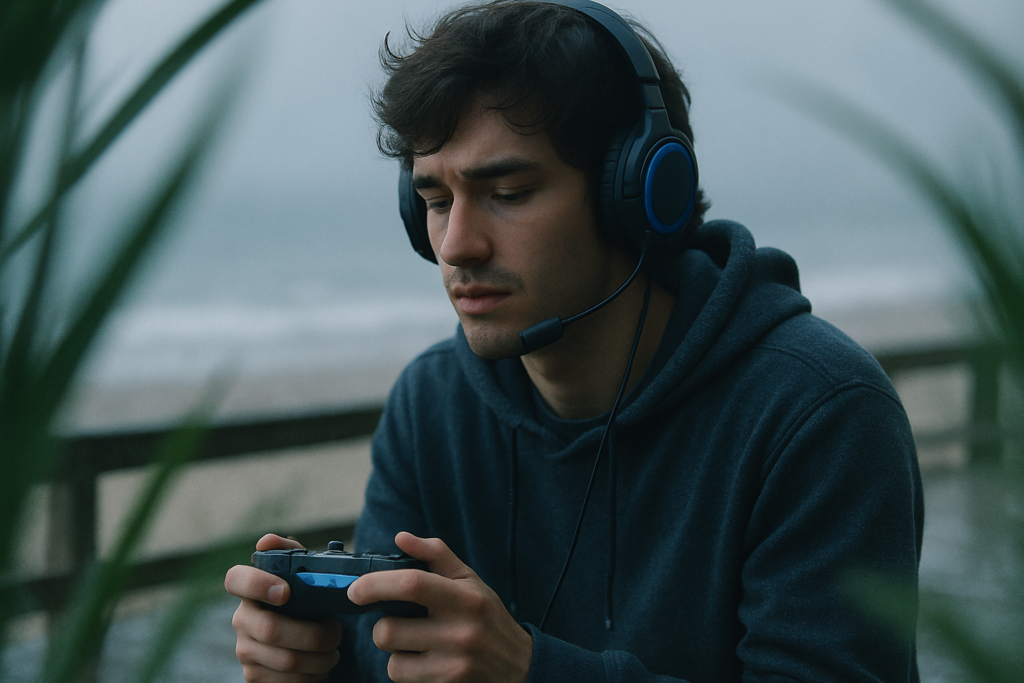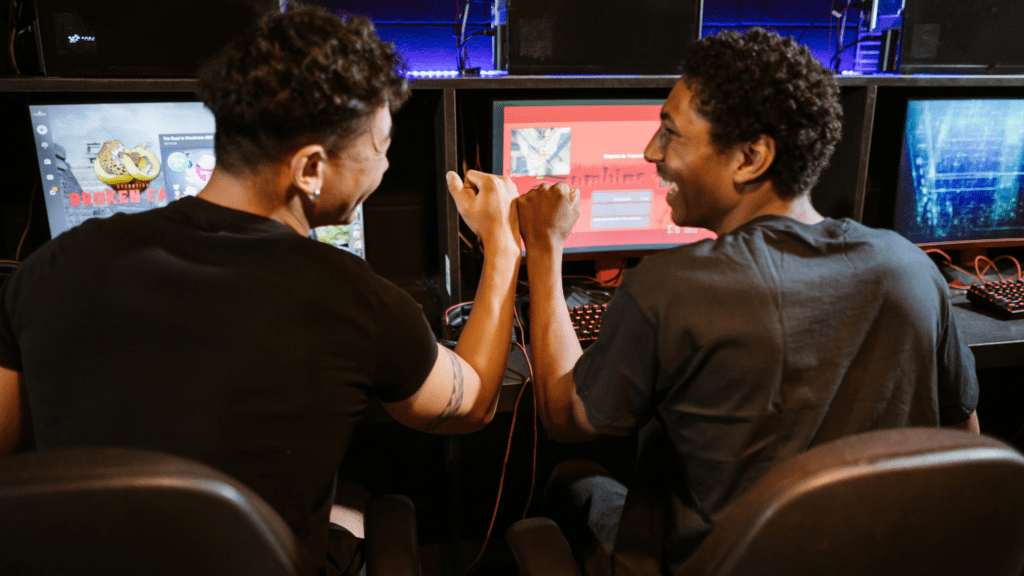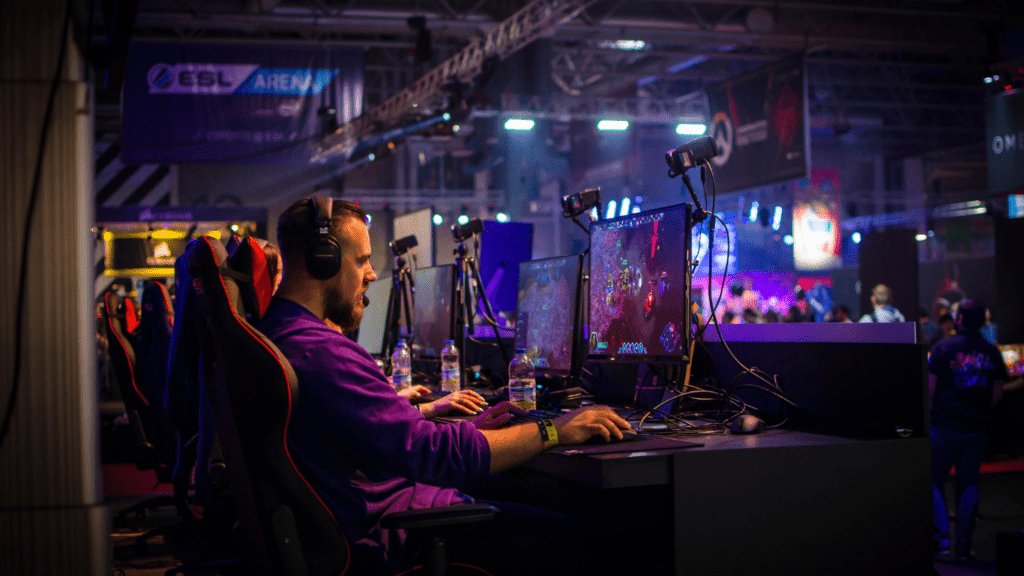Lock In Your Mindset First
Breaking into esports requires more than raw talent it starts with how you think. Success in the professional gaming world is built on discipline, intentional effort, and long term vision. Here’s how to build a mindset that sets you apart from the start.
Treat It Like a Sport
If your goal is to go pro, you can’t treat esports like a casual pastime. You need to adopt the same mentality elite athletes use: commitment, structure, and accountability.
Respect the process, not just the outcome
Approach practice as performance training
Value rest, focus, and proper preparation just as much as play
Set Clear Long Term and Short Term Goals
Without direction, progress is guesswork. Define what success means for you now and five years from now.
Start with big picture goals:
Become a top 500 ranked player within a specific timeframe
Join an amateur or semi pro team within a year
Work backwards into actionable steps:
Improve 1v1 mechanics over the next 30 days
Reach a daily match volume goal while maintaining quality and analysis
Tracking your progress keeps you motivated and gives you measurable outcomes to aim for.
Build a Consistent Routine
Consistency is the difference between hopeful players and rising stars. Your training schedule should push you while staying sustainable.
Carve out daily hours for practice, review, and physical breaks
Balance solo queue with team scrims and feedback sessions
Include mindset drills, warm ups, and skill focus blocks
The routine you build now becomes the foundation for future performance. Make it count early, and upgrading later will come naturally.
Pick Your Game, Then Know It Cold
Start by narrowing your lane. If you’ve got tactical instincts and thrive in high pressure team fights, look at MOBAs like League of Legends or Dota 2. If twitch reflexes and raw aim are your thing, FPS titles like Valorant or CS2 might suit you better. Into big picture strategy? RTS games still have a place. The key is to pick one genre and eventually one game and go deep, not wide.
Once you’re locked in, learn everything. Game mechanics, role dynamics, match pacing, map awareness every little piece adds up. At the pro level, you’re not just playing; you’re refining. Study the current meta, understand patch changes, and keep tabs on how the best players adapt. Most importantly, know your role inside and out. Whether you’re a support main or a high damage carry, your execution has to be automatic.
Games evolve constantly. Patches can make or break playstyles. Track changes like it’s your job because eventually, it will be. Follow dev updates, watch tier list shakeups, and stay tuned into pro streams and breakdowns. In a field that moves fast, the serious players are the ones who never get caught sleeping.
Go All In On Practice
Grinding aimlessly won’t cut it. Pro players follow structured training schedules, and if you’re serious, you should too. Block out time each day for warm ups, mechanics drills, and in game goal setting. Treat it like the gym deliberate reps matter more than just racking up endless hours.
Solo practice helps you refine mechanics and decision making under pressure. That’s your lab work. But don’t skip team scrims. This is where you develop synergy, adapt to live strategy shifts, and learn team comms at speed. Pros balance both and so should you.
Replays and VODs are underrated weapons. Reviewing your footage both wins and fails exposes patterns, habits, and gaps you’d never catch mid match. Take notes, compare against pro benchmarks, and set micro goals to grind out the weak spots.
This isn’t about playing more it’s about getting better, faster. Consistency and intention separate the grinders from the rising stars.
Start Competing Early
If you’re serious about going pro, don’t just train compete. Local LANs, weekly online brackets, and amateur tournaments are your proving grounds. These aren’t just warmups they’re the real thing. Every match gives you live experience you can’t simulate in practice. You make reads, make mistakes, and learn from both.
Tournaments aren’t just about winning. They teach composure under pressure. They show you how to adapt mid game when the unexpected hits. You’ll face different playstyles, habits, and personalities all of which build your ability to stay sharp and flexible.
Visibility matters too. Even smaller tournaments often get clipped, streamed, or followed by scouts looking for raw talent. Stack up enough solid performances, and your name starts circulating. Compete often, compete smart. It’s where the leap from casual to committed starts.
Build a Personal Brand Alongside Your Grind

If you want to go pro, talent alone won’t cut it you need an audience. Start streaming regularly, even if it’s just for a small crew at first. Consistency shows discipline. It also gives scouts and teams a way to see your gameplay, mindset, and growth over time. Don’t wait until you “make it” to start building your presence. Make it part of your routine now.
Networking matters too. Engage with other players, coaches, and teams across Discord, Twitch chats, Reddit, and Twitter. Relationships open doors teams post tryouts, players share leads, coaches drop advice. Stay active where your future teammates and mentors are hanging out.
And your social media? Keep it clean, focused, and goal oriented. Post wins, clips, milestones. Show your progress. Avoid drama. Think of it like your esport resumé the right post can attract the right person who gets you to the next level.
Get Coaching and Feedback
You won’t figure everything out solo. If you’re serious about leveling up, get coaching from players who’ve already made the climb. A good coach doesn’t just point out your mistakes they teach you how to think differently, how to read the game, and how to train with focus.
Don’t stop there. Join Discord groups or niche training communities built around your game. These spaces are where strats, updates, and unfiltered feedback flow fastest. You’ll learn more from a week in the right community than a month grinding in silence.
The worst habit is thinking you’ll fix your bad habits later. Start clean. If your mechanics are off, your comms are weak, or your game sense is behind, fix it now. You’re not just playing from match to match you’re building muscle memory for the long haul. Learn like it matters. Because it does.
Break Into the Scene with Intent
Once your skills are dialed in, it’s time to get seen. Joining an amateur or semi pro team is the fastest track to visibility. These teams are hunting for rising talent with drive, and they’re often followed by scouts, streamers, and sponsor reps. Don’t wait to be invited apply, network, and show what you can do.
Showing up at esports events or open tryouts is also key. Yes, they can be daunting. But don’t underestimate the power of face to face presence and live gameplay. Coaches and managers remember the players who perform under pressure and take feedback seriously.
Meanwhile, keep a digital footprint that proves you exist. Stay active in community forums. Climb the ranked ladders and keep your profile public. Join scrim groups and Discords where other grinders hang out. Being visible isn’t just about ego it’s about creating opportunities by being part of the ecosystem. No one’s going to find you if you’re playing in the dark.
Use the Right Tools and Pathways
Getting good is one thing. Getting seen and taken seriously is another. Once you’ve put in the hours and know where your skills stand, it’s time to lock in your roadmap. That means cutting through the noise and using resources that actually move the needle.
There are dozens of guides floating around, but most don’t offer more than surface level advice. If you want to avoid wasting time, start with material that gives you insider structure from building your routine to landing your first amateur tryout. Pro level players aren’t just lucky; they follow a path. You can too, if you know where it starts.
We highly recommend bookmarking the esports career guide. It lays out the process with clarity: from being a weekend warrior to someone who’s building a legitimate shot at going pro. It’s not fluff it’s built for people ready to take this seriously.
Keep Your Eyes on the Pro League
If you’re serious about going pro, spend time watching the pros. Not just highlight reels. Study how they hold angles, rotate, track cooldowns, and make micro decisions under pressure. Watch their streams with chat off. Focus on pacing, comms, timing, and posture. Most top players aren’t just skilled they’re disciplined. There’s a difference.
Also, learn how they act off the game. How they handle interviews, setbacks, and long tournaments. Orgs aren’t just scouting raw talent they want players who are coachable, team oriented, and brand safe. At different tiers, expectations shift. Amateur leagues may want grinders with raw potential. Tier 1 organizations look for consistency, attitude, and audience pull.
And lastly? Stay hungry. Everyone hits plateaus. The ones who break through are the ones who tweak, watch tape, reset routines, and come back sharper. Evolution isn’t optional especially when the meta, team rosters, and game patches change overnight. Keep growing or you’ll fall behind. Simple as that.




